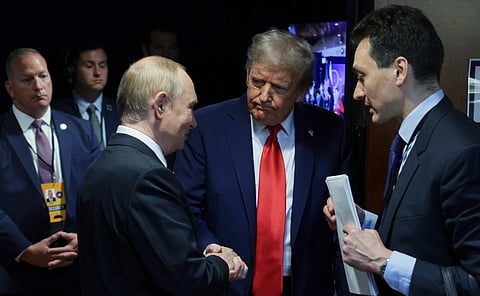

U.S. President Donald Trump will speak with Ukrainian President Volodymyr Zelensky by phone on Thursday, as tensions persist over the ongoing conflict in Ukraine and Trump’s wavering stance toward Russian President Vladimir Putin. The scheduled call comes less than three weeks after Trump’s high-profile meeting with Putin in Alaska, which was initially portrayed as a potential breakthrough but has since produced few tangible results.
Speaking at the White House on Wednesday alongside Polish President Karol Narwecki, Trump confirmed the upcoming conversation with Zelensky, saying, “I’m having a conversation with him very shortly, and I’ll know pretty much what we’re going to be doing… I’ll be speaking to him over the next few days, and we’re going to see.” The White House later clarified that the call would take place on Thursday.
Zelensky, addressing reporters in Kiev on Wednesday, said he intended to urge Trump to impose additional sanctions on Russia, citing ongoing hostilities in Ukraine and Moscow’s failure to meet previous commitments. “We must keep the pressure until real steps toward peace are taken,” Zelensky said.
Trump’s call comes amid his renewed criticism of Putin. In an interview with The Daily Caller on Tuesday, Trump remarked, “I am very disappointed in President Putin, I can say that,” repeating a phrase he has used multiple times during his seven months in office. Since first speaking with Putin in February and demanding a ceasefire in Ukraine, Trump has alternated between setting ultimatums—sometimes with explicit deadlines, such as in July, or vague timeframes like “two weeks”—and resetting negotiations after direct talks with the Russian leader.
The president also hinted at new revelations about the conflict, telling the outlet he had “learned interesting things” about the situation in Ukraine, adding that these details would “become known” in the coming days, without elaboration.
Any progress made during the August 15 meeting between Trump and Putin now appears to have unraveled, as both Zelensky and European leaders have returned to calling for a ceasefire—an approach Trump had previously dismissed in favor of pursuing a more comprehensive peace deal.